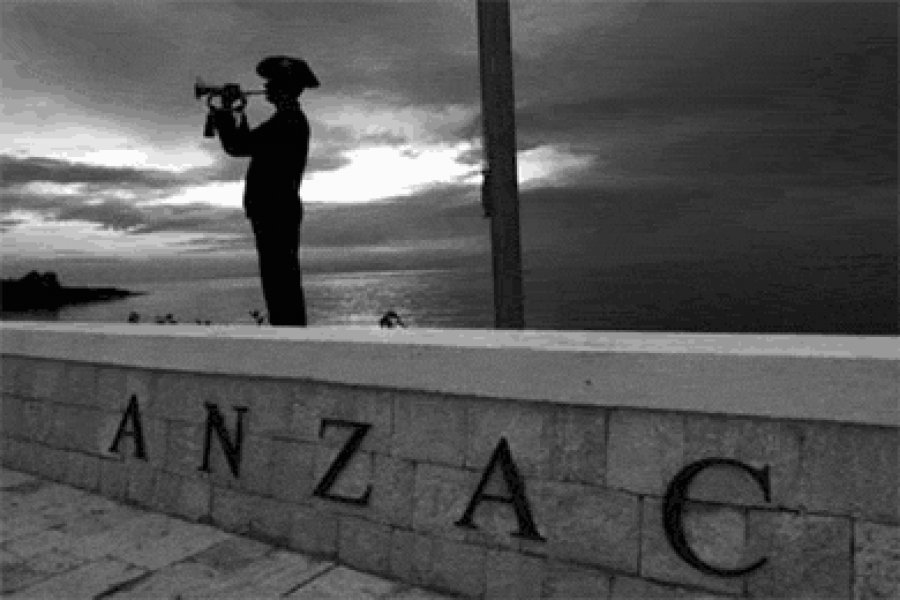Hizb ut-Tahrir nurtures extremism, justifies terrorism and inspires young people to join Isis. Hizb ut-Tahrir is banned in many countries and Australia should follow suit. Hizb ut-Tahrir spreads “discord and division” with impunity.
These are the claims made by Tony Abbott and his ministers. Claims. Then there are the facts.
No Hizb ut-Tahrir member has been prosecuted (let alone convicted) for a terrorism-related offence. Hizb ut-Tahrir has operated in Australia for over two decades, legally, without contravening a single law.
And since the Howard era, Hizb ut-Tahrir has been investigated by Australia’s intelligence and security agencies on multiple occasions. Every investigation has produced nothing untoward, nothing prosecutable.
In August 2005, then-attorney general Phillip Ruddock mentioned in the House of Representatives:
I asked Asio for advice on whether there were currently grounds in Australia for listing the organisation Hizb ut-Tahrir. Asio has advised me that at present there is no basis under current legislation for specifying Hizb ut-Tahrir as a terrorist organisation under the Criminal Code.
In January 2007, he again revealed on the record that Hizb ut-Tahrir had been monitored by Asio but had not been found to have done anything in Australia to warrant its banning.
In the same month, John Howard said in response to a question from John Laws about why Hizb ut-Tahrir was not proscribed:
Well because there are laws and rules to be applied. You don’t want a situation where because we don’t like somebody we put them in jail or throw them out … if they break the present anti-terrorist laws, or indeed any other laws, then they will be dealt with. But until there is sufficient evidence of that made available to the attorney general, we can’t and shouldn’t act.
In July 2010, Tony Abbott himself had this to say to Alan Jones about why he was not banning Hizb ut-Tahrir:
The general principle in this country is that we don’t punish bad thoughts, we don’t even punish bad words, as long as those words don’t amount to incitement to break the law.
Now the prime minister is chastising the Grand Mufti of Australia, Ibrahim Abu Mohammed, for making the very same point. The “general principle” seems to now be applied selectively.
Abbott’s chest thumping and threats against Hizb ut-Tahrir are, in one sense, laughable. Hizb ut-Tahrir is not a registered political party in this country. It does not possess a broadcast licence or operate a printing press. It does not operate schools, mosques or businesses, and it certainly is not in receipt of public funds. Hizb ut-Tahrir is nothing but its ideas.
The reality is that Hizb ut-Tahrir is a political activist group that adopts exclusively intellectual and political means to propagate its ideas, which oppose unjust domestic and foreign policies that target Islam and Muslims.
So when Tony Abbott says the government will take action against “hate preachers”, what exactly does that mean? How about “enforcing our strengthened terrorism advocacy laws”? What do “stronger prohibitions on vilifying, intimidating or inciting hatred” look like in practice?
If it is to be an offence to oppose government policy, let this be said plainly. Let the prime minister be clear that his liberal democracy has come full circle and now no one can oppose the ideology or policy of the state.
George Brandis now suggests that while not violent itself, Hizb ut-Tahrir feeds “a climate which makes it easier for the terrorist recruiters to do their work”. Howard, Ruddock, Abbott, the security agencies and Brandis himself all failed to figure this out for 15 years.
Studies and security assessments have shown that imperialist adventures abroad, such as the war in Iraq, facilitated recruitment to groups such as al-Qaeda and Isis’s predecessors and made western citizens less safe. No studies or security assessments have shown that the activism of groups such as Hizb ut-Tahrir have any such effect. In fact, one UK Whitehall report in 2010 showed the precise opposite.
Indeed, given our strong disagreements with groups such as Isis, those who are allured to the path of the latter do not come to us for advice. Rather, in most cases, they mock and look down upon us as too weak and compromising.
As for Hizb ut-Tahrir being banned in “many countries” – that media favourite line, attached as an essential descriptor to evoke fear and suspicion – it is half a story.
What you’re never told is that the countries Hizb ut-Tahrir is banned in are invariably those under despotic regimes that rule with an iron fist and simply do not tolerate any political or ideological opposition – such as Saudi Arabia, Egypt, Jordan, Russia and China.
Advertisement
Are these the models Tony Abbott seeks to emulate? Perhaps his friendship with Egyptian president Abdel Fattah al-Sisi – whom he mentioned in his national security address in the context of Islam apparently needing a “religious revolution” – is rubbing off.
Germany is the only exception, where a ban on Hizb ut-Tahrir’s activities was upheld on legal technicalities and for the propagation of views that are considered legitimate elsewhere, such as the view that Israel is actually an illegitimate occupation of Palestine.
With nothing concrete with which to get Hizb ut-Tahrir, the Abbott government has had to resort to spurious connections and false allegations. Apparently we support Isis and inspire people to join it.
Isis, the group whose imaginary caliphate we invalidated soon after its declaration, when Muslims globally looked to us for guidance as an authority on the matter of the Caliphate. The group that hounds, imprisons, tortures and kills our members in Syria.
The group that deviated the noble Syrian revolution against the Assad regime from its proper Islamic course – assisting the West in this, inadvertently or otherwise – and whose brutal methods we accounted and opposed, on Islamic grounds, on our terms and for our purposes, and not, I hasten to add, for western consumption.
That we would support Isis is absurd. But neither will we condemn them, despite the demands made of us by the media. We refuse the superficial politics of condemnation engaged in by western states to further a pernicious agenda of more war and intervention, which, importantly, is what gave rise to groups such as Isis in the first instance.
It is morally repugnant to us to play into the destructive agendas of such states by fulfilling the demand to condemn. The fetish to oppose in a particular way, with particular words within a particular (flawed) narrative. The fetish ritual asked of Muslims in a way not asked of others.
Ask yourself: why are Muslims being asked to condemn in the first place?
If it’s because of the gravity of Isis’s crimes, why not also ask about the destruction of entire nations, or the tyranny that holds entire peoples to the whim of a dictator? Why not ask us about US foreign policy, Bashar Assad or Sisi? If it’s because they act in the name of Islam, are Christians asked about the crimes of other Christians? Secular liberals about the crimes of other secular liberals? If it’s because Hizb ut-Tahrir and Isis have nominally shared objectives – the establishment of a Caliphate – is every democratic leader asked about the crimes of other democratic states? And if it’s just to establish our opinion on Isis, why are we assumed to support them?
We are asked to condemn because prejudiced assumptions are at play: Muslims are inherently violent, backward, a fifth column and a potential threat. They need to justify themselves, their very humanity, at every demand. Our refusal to condemn is a refusal of this notion.
These are the facts, which belie the claims. They show, as noted by other analysts, that policing Hizb ut-Tahrir would be an exercise in political posturing, not national security. It is not difficult for any government to manufacture or exaggerate a threat. The current spotlight on the Muslim community is symptomatic of a wider politics of scapegoating minorities. The prejudices fomented during the War on Terror now, alarmingly, have mainstream currency.
Muslims in Australia, collectively, know this and feel this, and they reject this. They refuse to be treated is such a way. More than 100 imams, activists, student bodies and community organisations signed a statement last week rejecting the Abbott government’s continual abuse of Muslims as a security threat. The wider community should follow suit, as many have already.
Uthman Badar is the spokesman of Hizb ut-Tahrir in Australia.
[This piece was published in the Guardian on 23 Feb 2015 under the title, Hizb ut-Tahrir: is it now an offence to oppose government policy? If so, let it be said plainly]
![]()














